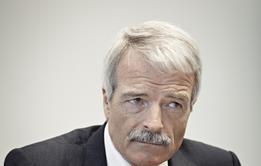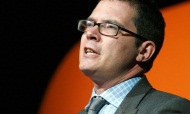In an interview to mark the NHS’s 65th anniversary, Ipsos Mori chief executive Ben Page tells Nick Timmins that the public’s attitude to health and the NHS’s culture need to change
The NHS remains the closest thing the British have to a religion. Even after raging debate over reform inside the medical profession, most people in Britain say it is one of the best health systems in the world. Public anxiety about it is far lower than a decade ago.
‘The biggest challenge is getting the public to take greater responsibility for their health’
At the same time, people are anxious about the future, with over eight in 10 saying they expect it to face a severe funding crisis. So although the principles it represents remain fundamental, it has changed dramatically since its inception; in terms of its aspirations and scope, it will have to change again. The proportion that agrees that there should be limits on NHS spending is up from 44 per cent in 2006 to 58 per cent now.
Public responsibility
To me, the NHS has three major challenges. The biggest is to achieve a huge cultural change in Britain − getting the public to take greater responsibility for their health. None of us would buy a car, never service it and expect it to run faultlessly for decades, while filling it with any old fuel.
‘The challenge is changing internal culture and overcoming its “listening deficit”’
Changing the NHS from an emergency/breakdown service to one that spends much more of its budget on prevention and routine local care, and less on intensive episodes in hospitals, is an enduring challenge for politicians and leaders. They have made relatively little progress in times of plenty − whether an ever tightening squeeze will allow it is another matter, but a potential social care crisis is already putting pressure on the system.
The second challenge is changing internal culture, and overcoming its “listening deficit”. Despite its revered status, 40 per cent believe the NHS should be better at listening to patients, and 36 per cent say it should be better at listening to staff. Last year, Robert Francis referred to a “tolerance of poor standards”. Nearly 30 per cent of the public think this happens in most or all NHS hospitals, with one in 20 people thinking the problem is endemic. Building a much more responsive culture is the current aim of NHS England, but time will tell in terms of how much change it achieves.
Working out how to charge
The third will be working out how to charge for some elements of care. Across the Western world, governments are having to reduce social spending, and this will still be in train until 2020 and beyond. Part of getting people to reflect on their rising life expectancy will be making them take some more responsibility for it. A quarter of people do not have anything except the state pension to rely on − and will be living on less than they expect for longer than they seem to think.
So my prediction for 2023? The NHS will still be mostly free, it will still be seen as hugely important and we will still be fumbling along with the transition to a wellness service.
To the people working in it in 2023 − many of whom already are working in it − well done for getting through the upheavals of the 2010s and congratulations on your ingenuity, determination and courage in adapting the NHS to our rising life expectancy and increased and diverse populations.
The full text of all these interviews and others can be found in the Nuffield Trust’s Wisdom of the crowd: 65 views of the NHS at 65 report.
Ben Page is chief executive at Ipsos Mori; Nick Timmins was public policy editor at the Financial Times
The NHS at 65: not ready to retire

‘The NHS is one of the noblest social institutions any country has ever created’
- 1
- 2
- 3
- 4
- 5
 Currently
reading
Currently
reading
The NHS and the public both need a culture change







































No comments yet